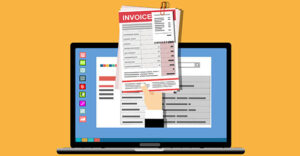
What relief has the IRS granted?
Due to the coronavirus, the IRS has extended the April 15 filing and federal income tax payment deadline to July 15, 2020.
On March 20, 2020, the IRS formalized their relief by publishing Notice 2020-18. Notice 2020-18 supersedes Notice 2020-17 which was issued on March 17. Notice 2020-18 provides that those with a filing deadline of April 15 (for a federal income tax return) have an automatic extension to July 15. No extension form (Form 4868 or Form 7004) is necessary.
The postponement of payments is available for federal income taxes (including payments of tax on self-employment income) due on April 15 for the 2019 tax year and to estimated income tax payments due on April 15 for the 2020 tax year. There is no limitation on the amount of the payment that may be postponed (which is an update from the superseded Notice 2020-17).
The postponement means that the period from April 15, 2020 through July 15, 2020 will be disregarded by the IRS for purposes of calculating any interest, penalties or additions to tax for failure to file a tax return or pay federal income taxes postponed by the notice.
More guidance can be found on the IRS’s FAQs page. https://www.irs.gov/newsroom/filing-and-payment-deadlines-questions-and-answers
What type of entities are included in this relief?
The notice covers the following types of “persons:” individual, trust, estate, partnership, association, company or corporation as provided in Sec. 7701(a)(1).
Based on the notice and confirmed by the IRS’s FAQs, the affected persons are provided relief only for income tax returns originally due April 15 (not for other types of returns, such as information returns).
Does this relief affect second quarter estimated tax payments normally due June 15?
Notice 2020-18 does not address second quarter estimated income tax payments. IRS FAQ #16 also confirms this treatment. Absent further relief, this payment is still due June 15.
When are contribution deadlines for individual retirement accounts (IRAs), health savings accounts (HSAs) and Archer medical savings accounts (MSAs)?
Based on IRS FAQs, the deadline for making contributions to IRAs, HSAs and MSAs is extended to July 15, 2020.
What relief is available to other types of federal taxes and returns?
Notice 2020-18 states that the relief is for federal income tax returns and federal income tax payments (it does not cover other types of returns or payments such as payroll taxes, or other non-income tax payments that are due April 15).
Does the extension relief apply to information returns (e.g., Form 5471 and Form 3520) that are normally attached to an income tax return originally due April 15?
Notice 2020-18 relief excludes information returns. Therefore, an extension request should be made to extend information returns.
If a client filed their 2019 income tax return and scheduled taxes to be paid by April 15, 2020, will this payment be automatically rescheduled for July 15, 2020?
- No, the payment will not be automatically rescheduled to July 15. If you do nothing, the payment will be made on the date you chose. Here is information on how to cancel and reschedule your payment:
- If you scheduled a payment through IRS Direct Pay, you can use your confirmation number from the payment to access the Look Up a Payment feature. You can modify or cancel a scheduled payment until two business days before the payment date. The email notification you received when you scheduled the payment will contain the confirmation number.
- If you scheduled a payment through Electronic Federal Tax Payment System (EFTPS), click on Payments from the EFTPS home page, login, then click Cancel a Tax Payment from the left menu and follow the instructions. You must do so at least two business days before the scheduled payment date.
If you scheduled a payment as part of filing your tax return (authorizing an electronic funds withdrawal), you may revoke (cancel) your payment by contacting the U.S. Treasury Financial Agent at 888-353-4537. You must call to make a payment cancellation request no later than 11:59 p.m. ET two business days prior to the scheduled payment date. - If you scheduled a payment by credit card or debit card, contact the card processor to cancel the card payment
What are the states doing with filing and payment deadlines?
States are providing some tax relief for individuals and businesses. Check out the latest developments on state tax filings related to the coronavirus. https://www.taxadmin.org/state-tax-agencies
Indiana Department of Revenue Updates
For the latest Indiana developments visit http://indiana.gov/dor/7078.htm
On March 19, 2020, Gov. Holcomb announced the Department of Revenue (DOR) is extending certain filing and payment deadlines to align with the IRS) and support Hoosiers during the COVID-19 health crisis.
Individual Income Tax
Individual tax returns and payments, along with estimated payments originally due by April 15, 2020, are now due on or before July 15, 2020. Returns included are the IT-40, IT-40PNR, IT-40RNR, IT-40ES, ES-40 and SC-40.
Corporate Income Tax
Corporate tax returns and payments, along with estimated payments originally due by April 15 or April 20 are now due on or before July 15, 2020. Those originally due on May 15, 2020, are now due on August 17, 2020. Returns included are the IT-20, IT-41, IT-65, IT-20S, FIT-20, URT-1, IT-6, IT-6WTH, FT-QP and URT-Q.
Other tax types
All other tax return filings and payment due dates remain unchanged. These due dates can be found on DOR’s tax filing deadlines webpage.
Customers with tax questions or concerns are encouraged to call DOR by calling 317-232-2240 or emailing using the online form.
When are my business trust payments due? (RST, FAB, WH, CIT)
Business trust filings and payments remain due on their current monthly cycle due dates.
My business is closed and I have no tax revenue to report, what do I need to do?
A return must be filed even when no tax is due unless the Indiana tax account has been closed using Form BC-100. If your business is closed temporarily and has no tax revenue for a filing period, you must file a return indicating $0 for that period ($0 return). If a business is permanently closed, an Indiana tax account is no longer needed you must complete Form BC-100.
Will I still get my tax refund/ Is DOR still processing returns?
Yes. All systems and operations are currently operating. DOR is currently processing individual tax returns resulting in refunds at normal speed (10 days electronically filed, 19 days paper-filed). You can check the status of your refund online at dor.in.gov/4339.htm or by calling 317-233-4018. DOR continues to maintain all operations at this time except for walk-in areas. Customers may still contact DOR via phone or email.
© 2020




